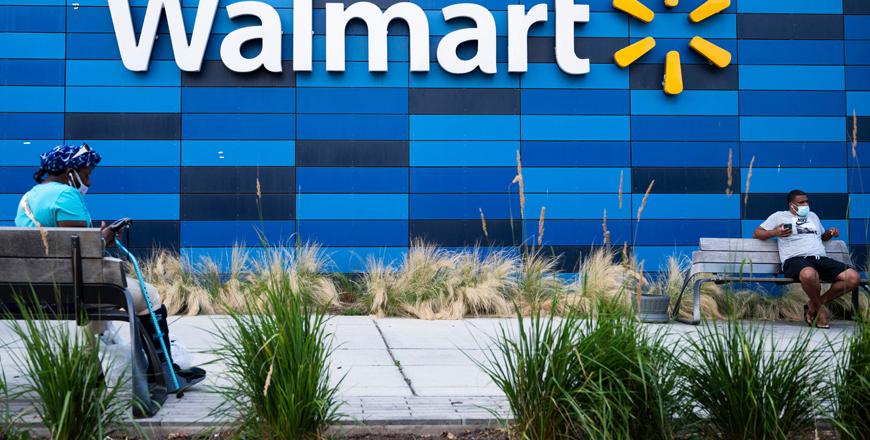- International News
- Web-2021-08-18 | 05:45 pm

Nayrouz News Agency :
Walmart lifted its full-year forecast on Tuesday following another solid performance at its US stores in the second quarter even as e-commerce growth slowed compared with earlier in the pandemic.
Executives from the US retailer reported brisk demand from shoppers, noting an uptick in store traffic in the most recent three months as more consumers have been vaccinated.
But they said they were monitoring the Delta variant of COVID-19, which has led to new restrictions in some parts of the United States. Late last month, Walmart reinstituted a mask requirement for employees in areas with high infection rates.
The upbeat outlook assumes "a continued strong US economy with no new significant government stimulus for the rest of the year", Chief Financial Officer Brett Biggs said on a conference call with analysts.
Walmart revenues rose 2.4 per cent to $141 billion in the quarter, as US stores enjoyed a 5.2 per cent jump in comparable sales, while international revenues fell following a series of divestitures.
Profits dropped 34 per cent to $4.3 billion compared with the comparable quarter of 2020.
Walmart Chief Executive Doug McMillon said the results show "our ability to serve customers in challenging environments and across multiple channels, formats and countries".
The company saw an especially strong performance in grocery, where it grew US market share and it enjoyed solid pricing.
US e-commerce sales grew 6 per cent in the second quarter after nearly doubling in the year-ago period.
Rising prices
Walmart's status as a value store has been beneficial as US stimulus programs are phased out amid rising consumer worries over inflation.
Rising inflation "has increased price sensitivity among consumers and sent some scrambling" to cut back on spending, said Neil Saunders, an analyst at GlobalData.
"This trend has been exacerbated by the withdrawal of some enhanced benefits and stimulus payments, which have made households more budget conscious."
Biggs acknowledged that company performance has been boosted somewhat by US government aid packages, saying, "we know we've benefitted from stimulus, but the underlying business is very strong."
Besides grocery, Walmart also said sales were strong in pets, beauty and baby products, while apparel and travel-related goods were in demand as customers socialise more as COVID-19 vaccines became widely available and businesses were able to reopen.
Executives also described brisk demand in the "back-to-school" season in the current quarter, especially in clothing and stationary.
Besides the Delta variant, executives described supply chain difficulties as a focus of attention.
The chain's merchants are adding lead time to orders and chartering vessels especially for Walmart goods. Still, out-of-stocks are running "above normal given strong sales and supply constraints", Biggs said.
Walmart raised its full-year sales outlook to "slightly positive" after previously projecting a decline. The outlook for earnings per share of $6.20 to $6.35 is also higher than the firm's earlier forecast.
Shares rose 0.8 per cent to $150.05 in early trading.













